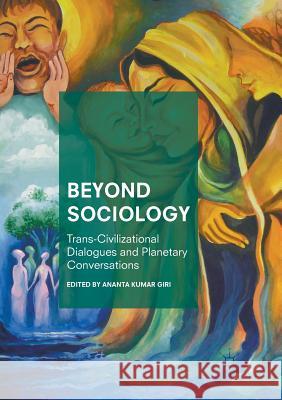Beyond Sociology: Trans-Civilizational Dialogues and Planetary Conversations » książka
topmenu
Beyond Sociology: Trans-Civilizational Dialogues and Planetary Conversations
ISBN-13: 9789811349218 / Angielski / Miękka / 2019 / 228 str.
Kategorie:
Kategorie BISAC:
Wydawca:
Palgrave MacMillan
Język:
Angielski
ISBN-13:
9789811349218
Rok wydania:
2019
Wydanie:
Softcover Repri
Ilość stron:
228
Waga:
0.30 kg
Wymiary:
21.01 x 14.81 x 1.32
Oprawa:
Miękka
Wolumenów:
01
Dodatkowe informacje:
Wydanie ilustrowane











